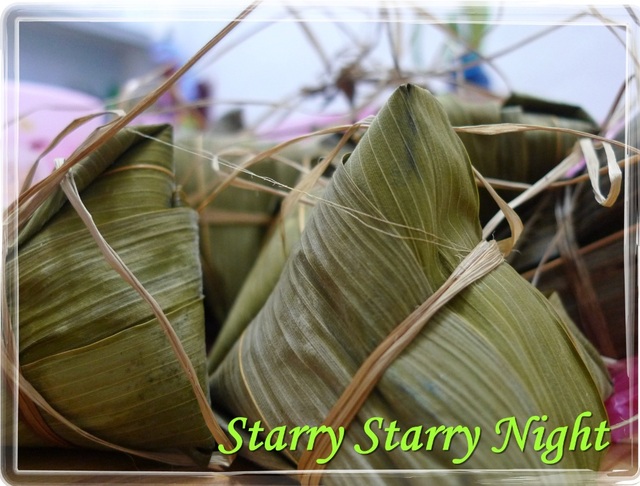The day falls on the 6th of June this year (what a pure coincidence!); which was yesterday.
As the name suggested, the festival is largely associated with the dumplings (food) and the dragon boat (activity) which formed the celebration of the festival.
History/Origin
The festival and the notion of dumplings and dragon boat takes us back to the early periods; BCE (Before the Common Era) during the existence of the warring states; 278 BCE, in ancient China.
As this is a Chinese festival, it is no surprise that the whole thing started from China.
The famous icon believed and popularly attributed to the origin of this festival is a poet and an official, Qu Yuan (屈原) who was serving the king of the ancient state of Chu, in the warring states period of the Zhou Dynasty. He was of royal descent and served the government. He opposed to the ruler's decision to form an alliance with the powerful Qin forces at that time, thus incurred the wrath of the king who sent him away on exile based on the allegations of treason.
When the Qin took over the capital of Chu and the kingdom, Qu Yuan was distressed and ended his life by jumping into the river.
His death was mourned by many who had supported and liked him, and they made lumps of rice to throw into the river where he died to distract the fishes from feasting on his body.
There were also some who went to the extent of rowing their boats to uncover his body and at the same time, scare away the fishes in the river.
He was dearly remembered for his loyalty and also for his poetry, which were mostly written during his time in exile.
The acts of the lumps of the rice, led to the notion of the dumplings today, while the boat rowing/paddling led its way to the dragon boat race today.
Other Sources of Origin
Qu Yuan remained the most popular figure to be associated with the origin of this festival, but there were places in China; i.e: Zhejiang which also commemmorates the filial piety of Cao E who tried to rescue her father and drowned to her death while doing so.
In short, most of the sources and stories related to the origin had something to do with the notion of loyalty/filial piety and included suicide/death in the river, and the acts of trying to protect the body from the fishes.
Celebration
Rice Dumplings

The notion of dumpling came from the lumps of rice, which is now largely associated with the glutinous rice dumplings; also known as Zhongzi (粽子) in Mandarin or also Zong 粽 in Cantonese.
The rice dumpling is usually wrapped in bamboo leaves; in a triangular or tetrahedral shape.
The glutinous rice is the main part of the dumpling, and is usually cooked by stir-frying.
The traditional zong/zhang (Hokkien) is composed of black mushrooms, salted egg yolk, pork, chestnuts, and may contain traces of dried scallops/shrimps too.
The making of zhang/zong is a long and tedious process, and usually take a few hours and is a family activity (like all Chinese festivals) in the olden days.
There are also different types of zong with their fillings available, such as red bean paste, mung bean paste, chicken, or sometimes, no filling at all which requires the dumplings to be eaten with sugar or sweet syrup.
Dragon Boat Race
The paddling of the boat to search for the poet's body or to scare away the fishes gave birth to the idea of the dragon boat race which coincides with the celebration of the festival.
The notion of the dragon came about due to the period of the dumpling festival which occurs during the summer solstice, where the day presides longer. As the sun is often associated with the yang energy and also the iconic dragon, thus the boat race came to be known as the Dragon Boat Race, a symbol of the weather.
The Dragon Boat race is an annual event in a few countries like Malaysia, Singapore and China.
The dragon boat race is most popular and garnered much public attention in Malaysia; which usually takes place in Penang, an island located in the northern region off the west coast of Peninsular Malaysia where most of the professionals participate to win the tournament every year.
Even schools sent their best teams to partake in the exciting race which attracted not only the foreigners but also local tourists from all over Malaysia to make that trip to the state to watch the race in action.
Public Holiday
The festival is observed as a public holiday in China and states in the republic; which includes Taiwan, Macau and China.
This year, in Malaysia, we were fortunate enough to have the festival coincide with the public holiday replacement of the king's birthday which fell on Saturday, and thus some of the companies replaced the holiday for their employees on the following Monday which was the day of the festival, thus making it a longer weekend :)
For more on the Zong (food), please refer to my food blog :)
No comments:
Post a Comment